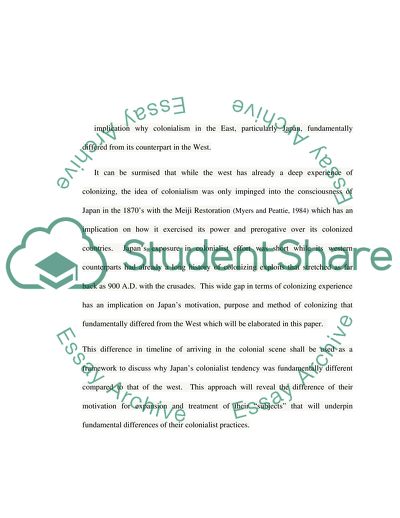Cite this document
(Japanese colonialism was fundamentally different from western Essay - 1, n.d.)
Japanese colonialism was fundamentally different from western Essay - 1. Retrieved from https://studentshare.org/history/1756030-japanese-colonialism-was-fundamentally-different-from-western-colonialism-do-you-agree-discuss
Japanese colonialism was fundamentally different from western Essay - 1. Retrieved from https://studentshare.org/history/1756030-japanese-colonialism-was-fundamentally-different-from-western-colonialism-do-you-agree-discuss
(Japanese Colonialism Was Fundamentally Different from Western Essay - 1)
Japanese Colonialism Was Fundamentally Different from Western Essay - 1. https://studentshare.org/history/1756030-japanese-colonialism-was-fundamentally-different-from-western-colonialism-do-you-agree-discuss.
Japanese Colonialism Was Fundamentally Different from Western Essay - 1. https://studentshare.org/history/1756030-japanese-colonialism-was-fundamentally-different-from-western-colonialism-do-you-agree-discuss.
“Japanese Colonialism Was Fundamentally Different from Western Essay - 1”. https://studentshare.org/history/1756030-japanese-colonialism-was-fundamentally-different-from-western-colonialism-do-you-agree-discuss.


